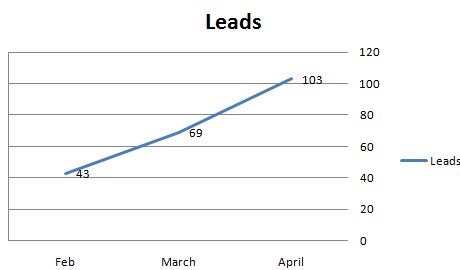How Quickly Will a New Domain Name Rank?
When it comes to search engine optimization, domain name age is certainly one of the factors that goes into how well a website ranks. If you have a domain that’s been around for a decade, it’ll be much easier to get that website ranking for your keyword than it would be with a domain name that was recently registered and has never had an actual website with content on it. We recently received a question from a client with one of our amazing predesigns mentioning the fact that they have been blogging actively for awhile, but their site is still no where near the first page of Google’s rankings. The domain name for this specific client was brand new as of about a month ago.
First of all, talking about “Google rankings” by itself is extremely vague and is useless for the most part, as ranking highly for “Seattle real estate” is a totally different scenario than ranking well for an obscure keyword such as “small teapot with flower cover made in Madison, WI”.
Unfortunately, as with most things in the SEO world, there is no simple answer as to how long it will take a domain name to rank highly. It depends on how competitive a keyword you are targeting, and how many links you end up building back to your domain. There are thousands upon thousands too many variables at play to give a blanket response that fits every scenario.
So, I think it’s clear there’s no magic pill to bypass the Google sandbox (damn, I know). Your best bet is to keep pumping out great content, and build a bunch of backlinks back to your domain (ideally with great anchor text). If you really want to speed up the process of ranking highly for your keyword, we recommend paying an expert to evaluate the difficulty, cost and to develop a strategic plan rather than just shooting in the dark and hoping a bunch of content takes you to the top of the search engines for your desired keywords.
I hope this helps a little bit at least…






 My guess is that when
My guess is that when 


 )
) some pretty significant issues, “straight out of the box….”
some pretty significant issues, “straight out of the box….”
 Over the next few posts I will endevour to bring you some ideas on the VALUE of tracking website analytics that rise well above simply receiving leads… Now, Receiving leads, or convincing visitors to self identify is first and foremost. But how about just getting better…
Over the next few posts I will endevour to bring you some ideas on the VALUE of tracking website analytics that rise well above simply receiving leads… Now, Receiving leads, or convincing visitors to self identify is first and foremost. But how about just getting better…


 Catch Our Feed
Catch Our Feed Subscribe via Email
Subscribe via Email Follow Our Tweets
Follow Our Tweets Friend Us On Facebook
Friend Us On Facebook Watch Us On Youtube
Watch Us On Youtube